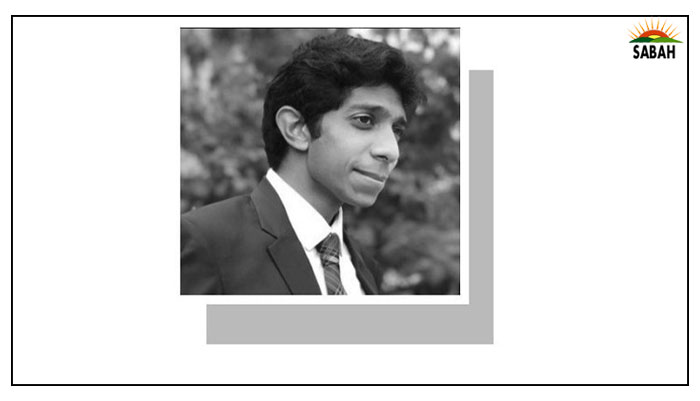All that glitters…Muhammad Mohsin Masood
THE law is all about relationships. Ostensibly, it is a body of rules dictating relationships and the interconnectivity of our shared social experience. States, provinces, governments, statutory bodies, private companies, parents, spouses, and total strangers the law dictates the interactions between two entities/ individuals. The law determines our relationships.
However, what sort of relationships does the law determine? What kind of connection between two groups/ individuals does it help set up? When the law compels two groups/ individuals to mould their actions in a particular way, what is the result and where does it leave the connection with others in this world?
More often than not, the law helps set up a relationship where one party is stronger than the other. This is truer in the domain of public law. Between a state and an individual, between a parent ministry and an autonomous body, between the Speaker of the House and ordinary legislators the law wants one in a position of strength and the other in a position of weakness or subordination.
This also holds true for relationships between private parties from the right of divorce granted to the husband to majority shareholding in a company. In fact, if you look closely, it seems that the law requires one to be higher and the other to be subordinate.
The picture of power imbalance can always be inverted.
Thats how the law deems a relationship to be a lawfully workable one. It is, therefore, not hard to miss why the early jurists looked at the law as simply the command of a higher power backed by the threat of coercion.
However, this article is not about age-old jurisprudence. One must look beyond the dictates of the law and pierce the veil of legal normality to assess whether this is true. Can society only function if it is held together by the chains of law linking our affairs top to bottom? Determining our relationships where one has power and the other is left at the mercy of the law? Or can this lopsided picture of the law be inverted, and can we forge relationships of equality? Can we act in a way that subverts this understanding of relationships personal, professional, social and political that one party is in a position of power and the other is not?
These questions could be answered in the affirmative. One can rage, cry out, march, speak, and shout these are commendable acts of courage to highlight what one perceives as an injustice. However, you can also look at it another way. The mistake lies in yielding to the legal fiction that the law sets up of taking the strength of one party at face value. Yes, the party in a legally strong position has an advantage that the law bestows on it but that very strength has its own failings and disadvantages.
On the other hand, those who are looked upon as legally weak are unaware of the inherent strength that lies in that very weakness. Take the example of David and Goliath. At one hand is the massive Goliath, a towering warrior and at the other is David, an apparently weaker and smaller shepherd boy armed with only a slingshot. One seems to have all the power and the other is at his mercy. However, as Malcolm Gladwell recounts in his book David & Goliath, it is precisely because David was seen as small and weak and Goliath as huge and strong that he was able to overcome Goliath. The slingshot was actually a missile aimed at a slow-moving huge lump of muscle which found its mark with devastating effect.
When looking at advantages, disadvantages and the power imbalance between those with strength and those who are weak, we can always invert the picture. Those who are powerful, are also weak because of that very power. Those who are deemed to be weak, have an advantage because of their relative weakness. This is the inner strength that can be tapped into despite the hurdles of the law. This was the inner strength on display during the suffragettes movement, the civil rights movement, the independence struggle and countless other struggles around the world. This is the pice de rsistance in any resistance.
We can create relationships anew based on this deeper understanding of our strengths and weaknesses which is more valuable than any understanding of the law.
We may hike through precedent, expend all our energy on the letter of the law, take our knives out and slice through arguments, conceptualise and stress the theories of the kings of old. Just to find the right workings of our relationships in society. However, the true picture may just emerge when you invert those relationships. All that glitters is not gold.
Courtesy Dawn












